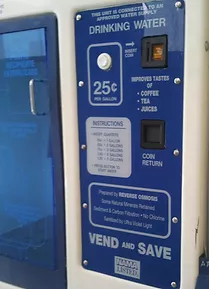My tap water is usually fine for my beers. I use a cheap carbon filter to get rid of chlorine. If I am brewing at a friend's house, I use Campden tablets. Occasionally I will want to build my own water, in which case I get RO water from the supermarket machine, $.25/gallon. My work has a commercial ice maker but I have been using kveik yeast lately and my
Cuss TriCoil goes from boil to 100F in 3 minutes with no ice.
We don't have a local homebrew supply but 3 local breweries support the club by offering full bags of base grains at their wholesale price and mill my own grain. My last buy was 55lbs of Bairds Pale Malt for $44.
I usually buy my hops by the pound from someone like
HopsDirect or
YakimaValleyHops and often shop their sales.
I've never used propane. I brewed BIAB on my stove top for years but picked up an
Anvil Foundry last year. It costs a bit but it was worth it to get out of the kitchen!
I usually reuse my yeast and ferment in buckets that I bought from a local food manufacturer for $.50 each. For a long time I used water bath to maintain temperatures. Then I was given a chest freezer by a friend when I helped them move and am SO glad that I don't have to mess with that any more.
I've always been a penny pincher and part of the fun for me is seeing how cheaply I can make awesome beer! Often times, that requires an upfront cost but I make 1 or 2 changes to my system every year so it isn't a budget crunch.

















![Craft A Brew - Safale BE-256 Yeast - Fermentis - Belgian Ale Dry Yeast - For Belgian & Strong Ales - Ingredients for Home Brewing - Beer Making Supplies - [3 Pack]](https://m.media-amazon.com/images/I/51bcKEwQmWL._SL500_.jpg)









































